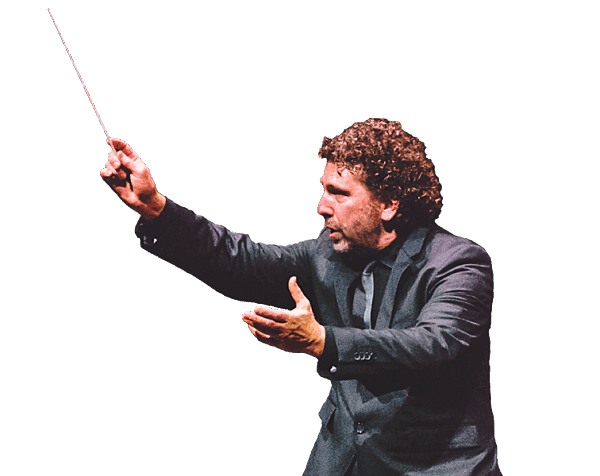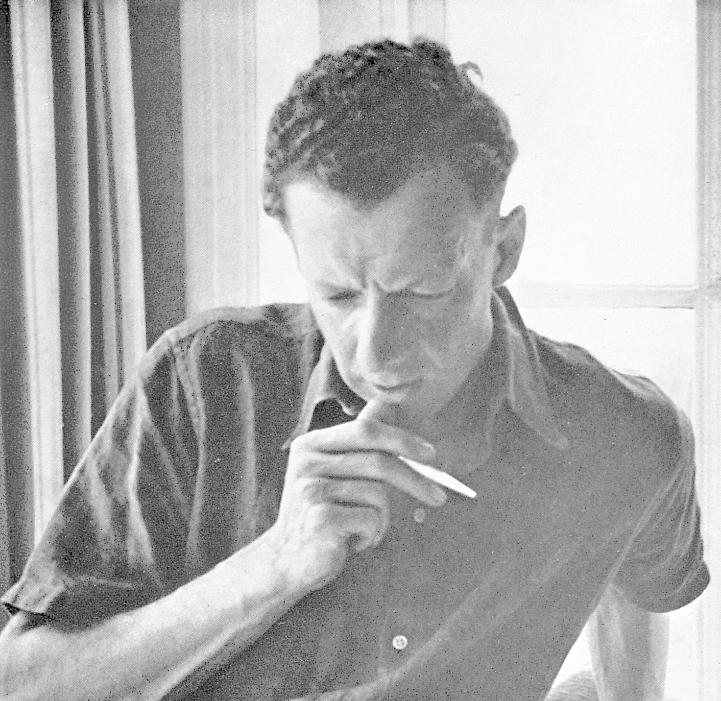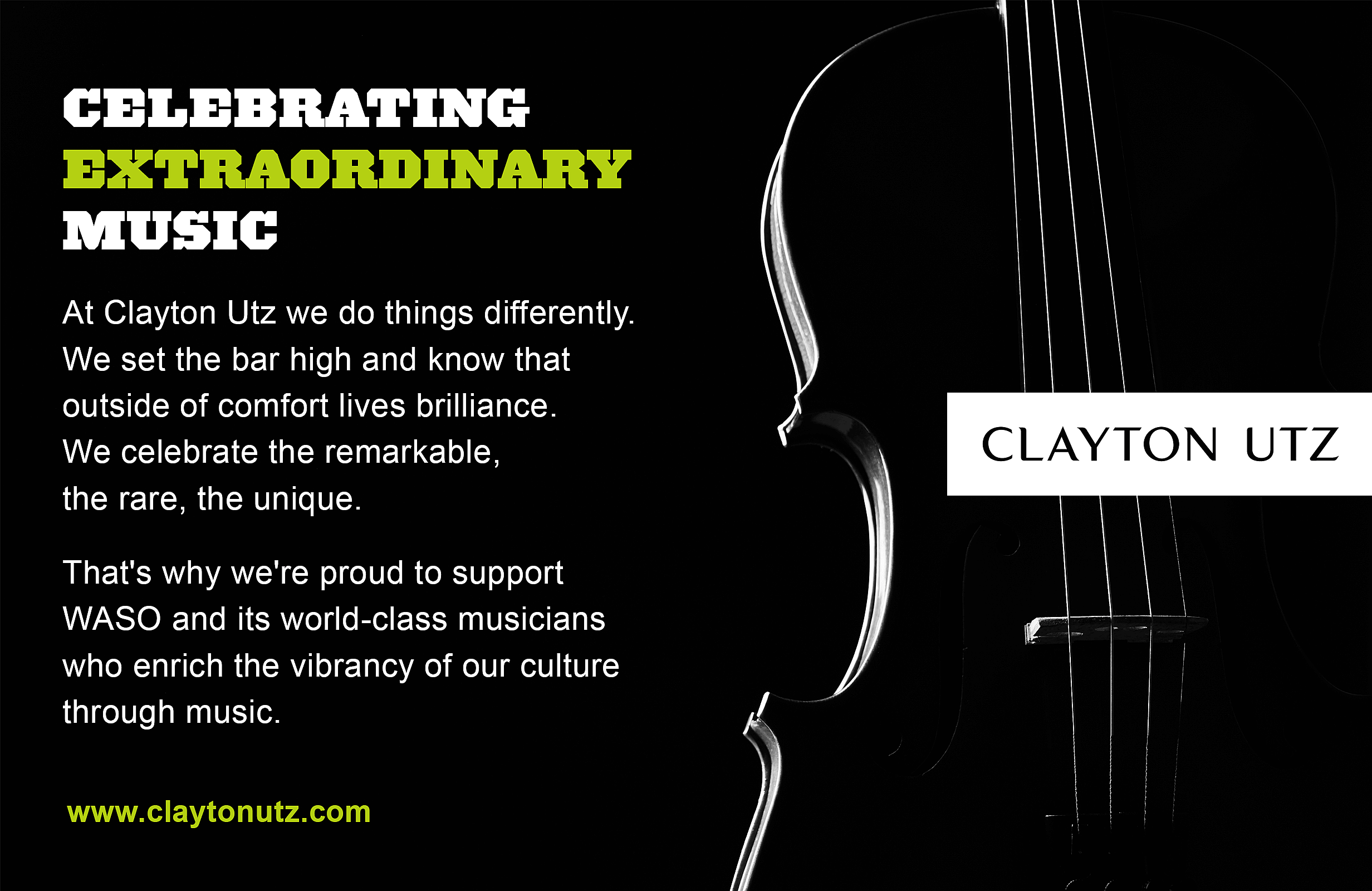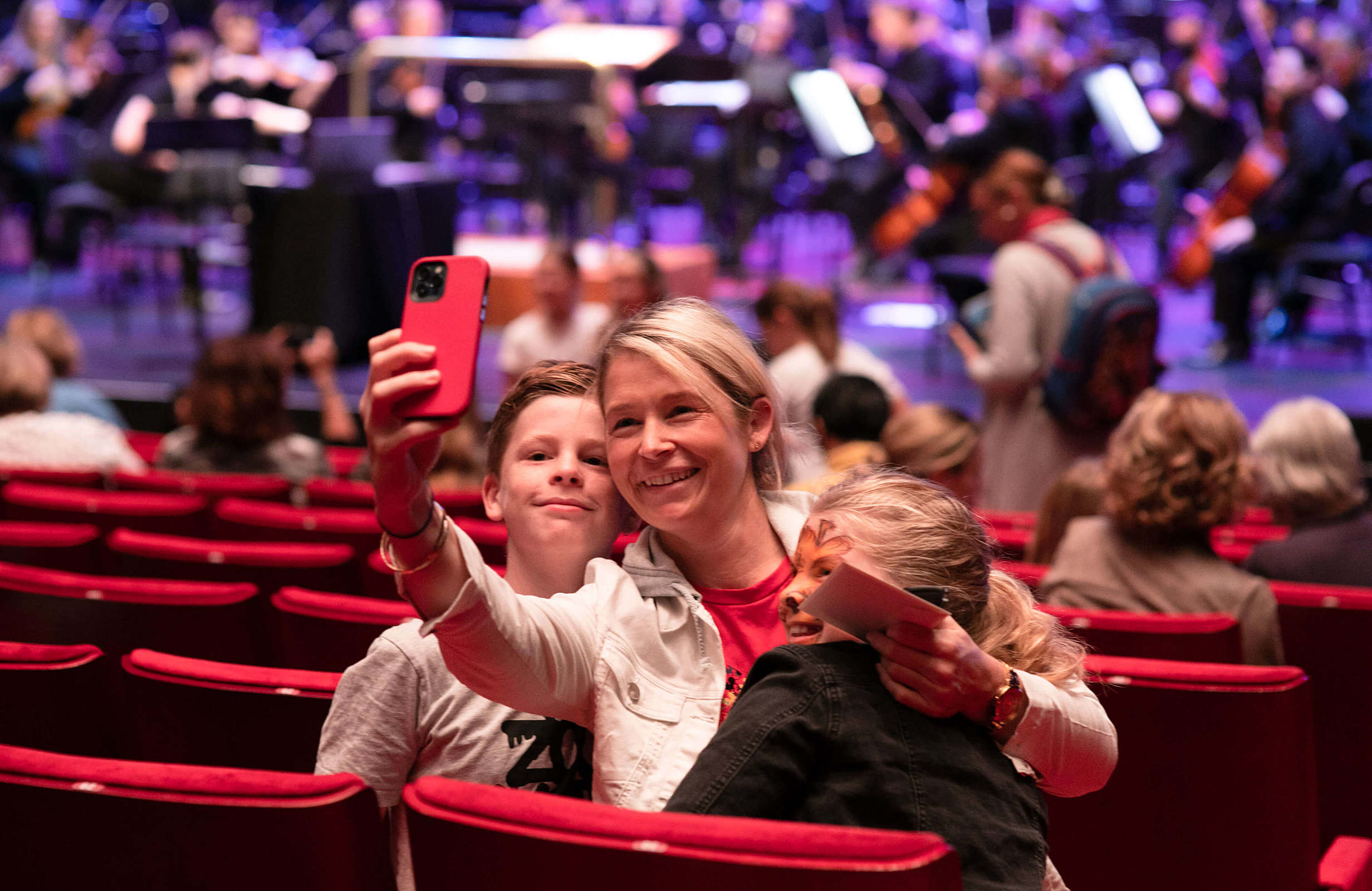Britten's War Requiem
MASTERS SERIES
Friday 19 & Saturday 20 August 2022, 7.30pm
Perth Concert Hall

West Australian Symphony Orchestra respectfully acknowledges the Traditional Custodians and Elders of Country throughout Western Australia, and the Whadjuk Noongar people on whose lands we work and share music.
How to use your Digital Program
You may use this digital program in the Perth Concert Hall Auditorium. Please use it respectfully and allow your fellow concert-goers to enjoy their concert experience by following these guidelines:
• Please enable Concert Mode at the top of your browser and further dim your screen in your device's settings.
• Place your phone on silent and mute all videos.
• Photography, sound and video recordings are only permitted prior to the start of the performance, and after the musicians have bowed at the end.
• For more information, see Your Concert Experience.
Show more...
Britten's War Requiem
Benjamin BRITTEN War Requiem (77 mins)
Requiem aeternam
Dies irae
Offertorium
Sanctus
Agnus Dei
Libera me
This concert has no interval.
Asher Fisch conductor
Musicians of the Australian National Academy of Music
Elena Perroni soprano
Paul O’Neill tenor
David Greco baritone
WASO Chorus
Tasmanian Symphony Orchestra Chorus
Aquinas College Schola Cantorum
Asher Fisch appears courtesy of Wesfarmers Arts.
Presented in collaboration with Australian National Academy of Music (ANAM).
ANAM is supported by the Minderoo Foundation.
Wesfarmers Arts Pre-concert Talk
Find out more about the music in the concert with this week’s speaker, Hugh Lydon. The Pre-concert Talk will take place at 6.45pm in the Terrace Level Foyer.
Listen to WASO
This performance is recorded for broadcast on ABC Classic. For further details visit abc.net.au/classic
Did you know?
-
Britten began composing at the age of 5, growing up in Suffolk, England.
-
The choice of each soloist at the premiere of Britten's War Requiem was to represent a nation most affected by WWII.
-
Britten wasn't happy with the premiere of his work. He had asked for specific chorus (which he didn't get), the London Symphony Orchestra (which he didn't get), and the acoustics of Coventry Cathedral were, famously, are not up to the standard of others of its time.
-
Britten's final rehearsal for the War Requiem battled the noise of workmen finishing the cathedral!
Asher Fisch on Britten's War Requiem
WASO & ANAM On Stage
VIOLIN
Laurence Jackson
Concertmaster
Riley Skevington~
Assoc Concertmaster
Semra Lee-Smith~
Assistant Concertmaster
Rebecca Glorie~
Acting Principal 1st Violin
Zak Rowntree*
Principal 2nd Violin
Kylie Liang~
Assoc Principal 2nd Violin
Kate Sullivan~
Assistant Principal 2nd Violin
> Emily Beauchamp
> Adrian Biemmi
Marlene Crone°
Stephanie Dean
Amy Furfaro^~
Beth Hebert
Alexandra Isted~
Jane Johnston°
Sunmi Jung
Christina Katsimbardis~
> Rachael Kwa
Akiko Miyazawa
Lucas O’Brien~
Melanie Pearn
Ken Peeler
> Liam Pilgrim
Louise Sandercock
Jane Serrangeli
Bao Di Tang
Cerys Tooby
Teresa Vinci°
> Megan Yang
VIOLA
Daniel Schmitt
Alex Brogan~
Kierstan Arkleysmith
Nik Babic
Benjamin Caddy~
> Andrew Crothers
Alison Hall
Rachael Kirk
Elliot O’Brien~
> Ariel Postmus
Helen Tuckey
CELLO
Rod McGrath
Eve Silver*~
> Daniel Chiou
Shigeru Komatsu
Oliver McAslan
Nicholas Metcalfe~
> Oliver Russell
Fotis Skordas
Tim South
DOUBLE BASS
John Keene*
Acting Principal
Mark Tooby
Acting Assoc Principal
Louise Elaerts
Christine Reitzenstein
> Ben Saffir
> William Taber
Giovanni Vinci°~
FLUTE
Andrew Nicholson
• Anonymous
Mary-Anne Blades
• Anonymous
> Anna Rabinowicz
PICCOLO
Michael Waye
• Pamela & Josh Pitt
OBOE
Liz Chee
> Alex Allan
Annabelle Farid°~
COR ANGLAIS
Jonathan Ryan^
CLARINET
Allan Meyer
> Oliver Crofts
Ashley Smith^~
BASS CLARINET
Alexander Millier
BASSOON
Jane Kircher-Lindner
Adam Mikulicz~
> Jack Cremer
CONTRABASSOON
Chloe Turner~
• Stelios Jewellers
HORN
★ Rod & Margaret Marston
David Evans~
Ben Messenger°~
Robert Gladstones
Principal 3rd Horn
Julia Brooke~
> Stefan Grant
> Calen Linke
Francesco Lo Surdo
> Rosie Yang
TRUMPET
Jenna Smith
• John & Nita Walshe
> Nicholas Corkeron
Fletcher Cox^~
Peter Miller~
TROMBONE
Joshua Davis
• Dr Ken Evans AM & Dr Glenda Campbell-Evans
> Will Kinmont
BASS TROMBONE
Philip Holdsworth
TUBA
Cameron Brook
• Peter & Jean Stokes
TIMPANI
Alex Timcke
François Combémorel
Assoc Principal Percussion & Timpani
PERCUSSION
Brian Maloney
> Aditya Bhat
> Nathan Gatenby
Tom Robertson^
Paul Tanner^
HARP
Will Nichols^
PIANO
Adam Pinto^
> Caleb Salizzo
ORGAN/HARMONIUM
Alessandro Pittorino^
Stewart Smith^
KEY
Principal
Associate Principal
Assistant Principal
Contract Musicians°
Guest Musicians^
> ANAM Musicians
ANAM Alumni~
★ Section partnered by
• Chair partnered by
* Instruments used by these musicians are on loan from Janet Holmes à Court AC.
Show more...
About the Artists

Asher Fisch
Principal Conductor & Artistic Advisor
A renowned conductor in both the operatic and symphonic worlds, Asher Fisch is especially celebrated for his interpretative command of core German and Italian repertoire of the Romantic and post-Romantic era. He conducts a wide variety of repertoire from Gluck to contemporary works by living composers. Since 2014, Asher Fisch has been the Principal Conductor and Artistic Advisor of the West Australian Symphony Orchestra (WASO). His former posts include Principal Guest Conductor of the Seattle Opera (2007- 2013), Music Director of the New Israeli Opera (1998-2008), and Music Director of the Wiener Volksoper (1995-2000).
Born in Israel, Fisch began his conducting career as Daniel Barenboim’s assistant and kappellmeister at the Berlin Staatsoper. He has built his versatile repertoire at the major opera houses such as the Metropolitan Opera, Lyric Opera of Chicago, San Francisco Opera, Teatro alla Scala, Royal Opera House at Covent Garden, and Semperoper Dresden. Fisch has conducted at leading American symphony orchestras including those of Boston, Chicago, Cleveland, New York, and Philadelphia. In Europe he has appeared with the Berlin Philharmonic, Munich Philharmonic, London Symphony Orchestra, Leipzig Gewandhaus Orchestra, and the Orchestre National de France, among others.
Highlights of Asher Fisch’s 2021-22 season include Otello and Der Rosenkavalier at the Teatro Comunale di Bologna, Adriana Lecouvreur at the Vienna State Opera, a gala concert at the Hungarian National Opera with Kristine Opolais, as well as concerts with the Colorado Symphony, Naples Philharmonic, and New Zealand Symphony Orchestra. Fisch’s 2020-21 season featured guest engagements with the Detroit Symphony, Utah Symphony, Sydney Symphony Orchestra, Dusseldorfer Symphoniker, and a farewell concert at the Bayerische Staatsoper for long-time director Nikolaus Bachler. Other recent seasons included concert and opera engagements with the Boston Symphony Orchestra at Tanglewood, Cleveland Orchestra at the Blossom Festival, Sydney Symphony, Teatro Massimo Orchestra in Palermo, Carmen, Die Zauberflöte, and Parsifal at the Bayerische Staatsoper, Ariadne auf Naxos with the Bayerische Staatsoper at the Hong Kong Arts Festival, Tannhäuser at the Tokyo National Theater, and Pagliacci and Schitz at the Israeli Opera.
Asher Fisch’s recent recordings with WASO include Wagner’s Tristan und Isolde in 2018, which won Limelight Magazine’s Opera Recording of the Year in 2019, Bruckner’s Symphony No.8 and tenor Stuart Skelton’s first solo album Shining Knight, all of which were released on ABC Classics. Fisch’s recording of Ravel’s L’heure espagnole with the Munich Radio Orchestra won Limelight Magazine’s Opera Recording of the Year in 2017. In 2015, he recorded the complete Brahms symphonies with WASO, released on ABC Classics to great acclaim. His recording of Wagner’s Ring Cycle with the Seattle Opera was released on the Avie label in 2014. His first Ring Cycle recording, of the Helpmann award-winning State Opera of South Australia production, garnered praise and awards including the Prix Lauritz Melchior and Académie du disque lyrique Paris. Fisch is also an accomplished pianist and has recorded a solo disc of Wagner piano transcriptions for the Melba label.
Asher Fisch appears courtesy of Wesfarmers Arts.
Show more...
About the Artists

Australian National Academy of Music (ANAM)
The Australian National Academy of Music (ANAM) is dedicated to the artistic and professional development of the most exceptional young musicians from Australia and New Zealand. It is a place in which musicians fulfil their potential as music leaders, distinguished by their skill, imagination and courage, and by their determined contribution to a vibrant music culture. With an outstanding track record of success, ANAM alumni regularly receive major national and international awards, and are currently working in orchestras and chamber ensembles around the world, performing as soloists, and contributing to educating the next generation of musicians.
Image credit: Laura Manariti
Show more...
About the Artists

Elena Perroni
Soprano
Praised for her “velvet soprano voice” (Philadelphia Inquirer), Elena Perroni has gained recognition on the international stage. Hailing from Western Australia, this season Perroni made her mainstage Carnegie Hall Debut as the soprano soloist in Schubert’s Mass in G Major as well as her role debut as Iolanta (Iolanta)
at the West Australian Opera. Elena has made regular appearances with the Philadelphia Orchestra in title roles such as Rusalka (Rusalka, Dvorak), Tatyana, (Eugene Onegin, Tchaikovsky) and in Berlioz's Les Nuits d'ete. Elena made her opera debut with Opera Philadelphia in Charlie Parker's Yardbird (Schnyder). As Doris Parker, she performed in the first opera to be performed at the legendary Apollo Theatre in New York City before reprising the role at English National Opera in London, 2017. Debuting in her home country as Mimi (La Boheme, Puccini) with the West Australian Opera in 2018 she then returned the following year as Violetta Valéry in Verdi’s La Traviata. She is the first Australian opera graduate of one of the most prestigious institutes of music, Curtis Institute of Music, where she graduated with the Festorazzi Scholarship for most promising vocalist.
Show more...
About the Artists

Paul O'Neill
Tenor
Australian tenor Paul O’Neill has forged a compelling international career performing throughout Europe and Australasia. In 2022, he sings Cavaradossi (Tosca), Alfredo (La traviata) for West Australian Opera and is tenor soloist in Britten’s War Requiem for WASO.
Most recently, Paul sang Don José (Carmen), Turiddu (Cavalleria rusticana) and Canio (Pagliacci) for West Australian Opera, Rodolfo (La bohème), Narraboth (Salome) and Alfredo for Opera Australia, the title role in Faust for Theater Münster, Pinkerton (Madama Butterfly) throughout China and Cavaradossi in both Perth and Magdeburg. He has sung Don José at the Glyndebourne Festival; Laca (Jenůfa) for Opéra de Lille; Rodolfo for Halle Opera and West Australian Opera; Elvino (La sonnambula) and Laca with Graz Opera.
Other roles include: The Duke (Rigoletto) with Opera Holland Park, Opera Australia, West Australian Opera, Staatstheater Karlsruhe and Staatstheater Mainz; Turriddu, Cavaradossi, and Carlo VII (Giovanna d´Arco) for Theater Bielefeld; Jason (Médée) for Theater Bielefeld and Staatstheater Mainz and The Italian Tenor (Der Rosenkavalier) for Berlin Staatsoper.
© Patrick Togher Artists’ Management 2022
Show more...
About the Artists

David Greco
Baritone
Internationally regarded for his interpretations of Schubert Lieder and the works of J.S. Bach, baritone David Greco has sung on some of the finest stages across Europe and has appeared as a principal in opera festivals such as Festival d’Aix-en-Provence and Glyndebourne. In 2014 he was the first Australian appointed to a position with the Sistine Chapel Choir in the Vatican.
He regularly appears with leading Australian ensembles such as Pinchgut Opera, the Australian Brandenburg Orchestra, Australian Chamber Orchestra, Sydney Philharmonia and, most recently, the Sydney Symphony Orchestra in their Helpmann Awardwinning concerts of Bach’s cantata, Ich habe genug. As a principal artist with Opera Australia, he appeared in The Eighth Wonder and The Love for Three Oranges, and his appearances as Seneca in Pinchgut’s Coronation of Poppea and Momus in Platée received critical acclaim.
David Greco is an active researcher into the historical performance practice of 19th-century vocal music and recently received his doctorate from Melbourne University. This led to the first Australian recordings of historically informed performances of Schubert’s song cycles Winterreise and Die schöne Müllerin (ABC Classic), the latter receiving an ARIA nomination for Best Classical Album (2020).
Show more...
About the Artists

Aquinas College Schola Cantorum
The Aquinas College Schola Cantorum is a choir of 35 choristers, currently consisting of boys between years 4-11. Known throughout the College as the Schola, it is a choral program unique to Aquinas College.
Formed in 2019, the Schola contributes significantly to the liturgical component of Aquinas College’s identity by singing at the daily Chapel Services, as well as at significant College events. In addition to these, the Schola also performs at the Saturday Vigil Mass at St Patrick’s Basilica, Fremantle every week during term time.
On average, each chorister spends nine hours a week making music in addition to their school commitments.
The Schola is regularly invited to perform in external events with other organisations. Opportunities have included singing with WASO, performing the National Anthem in Government House, and recording backing vocals for Andrea Corr’s Christmas Album. Several boys have successfully auditioned to sing as part of WA Opera’s Children’s Chorus for different operas, including Pagliacci, Carmen and Tosca.
Hugh Lydon
Director
On Stage
Dylan Atkins-Walters
William Atkins-Walters
Xavier Bianchini
Maxime Blackadder
Matthew Champness
Andrew Crawford
Morgan Davies
Enrico De Santis
Declan D’Costa
Elijah Fitzgerald
Kaelan Flodin
Aidan Griffiths
Jeremy Grubb
James Hawke
Lewis Jayatilaka-Smith
Evan Kent
Isaac Lim
Dominic Lomen
Louis Lynch
Felix Marshall
Oliver McKinnon
Joseph O’Neill
Thomas O’Neill
James Panton
Luka Patak
Francesco Scaglione
Xavier Silvester
Henry Townsend
Dashiell Van Ingen
Nathan Veitch
Isaac Wake
William Zhu
Show more...
About the Artists

WASO Chorus
The WASO Chorus was formed in 1988 and consists of around 100 volunteer choristers who represent the finest form of community music making, bringing together singers from all walks of life. They regularly feature in the WASO annual concert season, and are directed by Andrew Foote.
The Chorus has built an international reputation for its high standards and diverse range of repertoire. While its main role is to perform with the West Australian Symphony Orchestra the Chorus also maintains a profile of solo concerts, tours and community engagements.
The Chorus sings with the finest conductors and soloists including Asher Fisch, Simone Young, Stephen Layton and Paul Daniel. Recent highlights have included Brahms’ German Requiem, Mahler’s Second Symphony and Verdi’s Requiem. In 2019 the Chorus performed at the Denmark Festival of Voice and in 2018 toured China with performances of Orff’s Carmina burana. In 2020 they performed two Gala events on the Kalbarri Skywalk.
Andrew Foote
Chorus Director
David Wickham
Répétiteur
On Stage
SOPRANO
Lisa Barrett
Anna Börner
Annie Burke
Alinta Carroll
Penelope Colgan
Clara Connor
Ceridwen Dumergue
Fay Edwards
Bronwyn Elliott
Davina Farinola
Isalyn Fitzpatrick
Marion Funke
Lesley Goodwin
Diane Hawkins
Sue Nightingale Hingston
Michelle John
Bonnie Keynes
Brooke McKnight
Elysia Murphy
Abbie Radford
Lucy Sheppard
Sarah Shneier
Kate Sugars
Rebecca Thorne
Alicia Walter
Margo Warburton
Victoria-Grace Whiting
Charmaine de Witt
ALTO
Marian Agombar
Lisa Barz|
Llewela Benn
Helen Brown
Patsy Brown
Jeanette Collins
Catherine Dunn
Kaye Fairbairn
Jenny Fay
Susanna Fleck
Dianne Graves
Louise Hayes
Mathilda Joubert
Kate Lewis
Lynne Naylor
Deborah Piesse
Neb Ryland
Louise Sutton
Martina Veneracion
Olga Ward
Moira Westmore
Jacquie Wright
TENOR
David Collings
Allan Griffiths
John Murphy
Andrew Paterson
Les Puhl
Christopher Ryland
Simon Taylor
Arthur Tideswell
Stephen Turley
Malcolm Vernon
Brad Wake
BASS
Charlie Bond
Bertel Bulten
Samuel Johnston
Ethan Kent
Benjamin Lee
Andrew Lynch
Geoffrey Massey
Tony Marrion
Peter Ormond
Jim Rhoads
Mark Richardson
Steve Sherwood
Chris Smith
Robert Turnbull
Mark Wiklund
Andrew Wong
Declan Zammit
Show more...
About the Artists

Tasmanian Symphony Orchestra Chorus
The TSO Chorus was established in 1992 to present concert performances of opera but quickly broadened its repertoire to perform major choral works of all genres with the Tasmanian Symphony Orchestra. The Chorus has also established itself as a creative force delivering cutting edge a cappella programs for iconic Tasmanian festivals.
Regular collaborations with interstate symphony orchestras have brought greater exposure, as has participation in Mitsing concerts in Berlin and Barcelona, culminating in an invitation to premiere Roxanna Panufnik’s Ever Us in the Berliner Philharmonie.
In 2020 the Chorus created The Sunrise Project, a video demonstrating the resilience and determination of choristers through a virtual performance of Ola Gjeilo’s The Ground as the emotional backdrop to sensational local scenery.
After 24 months in isolation, the TSO Chorus made a triumphant return to the Federation Concert Hall in April to perform Beethoven’s 9th Symphony.
The TSO Chorus is thrilled to be performing the mighty War Requiem with WASO and the WASO Chorus.
June Tyzack
Chorus Master
Michael Power
Répétiteur
Nadeena Beck
Chorus Coordinator
On Stage
SOPRANO
Christine Coombe
Ruth Croser
Felicity Gifford
Loretta Lohberger
Sally Mollison
Schuya Murray
Yasmin Shoobridge
Joy Tattam
Salome Tobin
Lesley Wickham
ALTO
Philna Badenhorst
Claire Blichfeldt
Sally Brown
Carmelita Coen
Beth Coombe
Elizabeth Eden
Ann Godber
Ruby Lyons-Reid
Ashlyn Mackenzie
Mary McArthur
Caroline Miller
Tormey Reimer
Amy Richardson
Meg Tait
Gillian von Bertouch
Beth Warren
TENOR
Helen Chick
Phillip Clutterbuck
Michael Kregor
Tony Marshall
Simon Milton
Peter Tattam
BASS
Peter Cretan
Jack Delaney
Liam Filby
Greg Foot
Peter Hepburn
Sam Hindell
Liam McGuinness
David Ovens
Tony Parker
Dick Shoobridge
Da Teng (Eddie)
Show more...
About the Music

Benjamin Britten
(1913-1976)
War Requiem, Op.66
Requiem aeternam
Dies irae
Offertorium
Sanctus
Agnus Dei
Libera me
Incorporating texts of Wilfred Owen (1893-1918)
The whole of my life has been devoted to acts of creation (being by profession a composer) and I cannot take part in acts of destruction. I do not believe in the Divinity of Christ, but I think his teaching is sound and his example should be followed.
Benjamin Britten wrote these words in 1942, as part of a statement to the War Board in his application for conscientious objector status. Together with his lifelong partner, Peter Pears, Britten had left the UK for New York in early 1939. They returned three years later, but ran the risk of being branded criminals and facing incarceration if their application was rejected.
Britten had been committed to the pacifist cause from a very early age, even refusing to serve in his school’s cadet force at 13. He had begun thinking about a large-scale choral work to serve as a ‘call for peace’ when Gandhi was assassinated in 1948. He was therefore keen to accept a commission from the Coventry Arts Committee, who approached him in October 1958 about the composition of a work to mark the consecration of Coventry Cathedral. The Cathedral had been destroyed by Luftwaffe bombs on 14 November 1940, in a raid nicknamed ‘Operation Moonlight Sonata’, and the Committee had ambitious plans with which to mark its reopening.
In 1961, Britten wrote to the great German baritone Dietrich Fischer-Dieskau:
I am writing what I think will be one of my most important works. It is a full-scale Requiem Mass for chorus and orchestra (in memory of those nations who died in the last war), and I am interspersing the Latin text with many poems of a great English poet, Wilfred Owen, who was killed in the First World War. These magnificent poems, full of the hate of destruction, are a kind of commentary on the Mass; they are, of course, in English. These poems will be set for tenor and baritone, with an accompaniment of chamber orchestra, placed in the middle of the other forces. They will need singing with the utmost beauty, intensity and sincerity. Peter Pears has agreed to sing the tenor part, and with great temerity, I am asking you whether you would sing the baritone.
Fischer-Dieskau accepted and Britten added a further solo part for soprano Galina Vishnevskaya, wife of his great friend and collaborator Mstislav Rostropovich.
The huge forces for the War Requiem are divided into three distinct groups, who do not perform concurrently until the final pages of the work. They are:
i. The boys’ choir, accompanied by chamber organ or harmonium, usually positioned offstage. They sing the text of the Requiem Mass in Latin and are heard as voices from heaven.
ii. The main orchestra, main chorus and soprano soloist, who also sing in Latin and represent the celebration of the mass on earth.
iii. The two male soloists, accompanied by a chamber orchestra of string quintet, flute, oboe, clarinet, bassoon, French horn, harp and percussion. The two soloists are soldiers and their text is the poetry of Wilfred Owen.
Although Wilfred Owen was killed in action at the Battle of the Sambre – only days before the Armistice – when Britten was barely a year old, the two make curiously kindred spirits. Both were committed pacifists, both fell under the spell of a charismatic older colleague (Siegfried Sassoon in Owen’s case and W.H. Auden in Britten’s), both were discreetly gay, both challenged the Church’s role in the condoning of war and both men wrote in gritty realities, contrary to the heroic spirit of the times. In many ways, Owen’s influence legitimises Britten’s writing of the War Requiem: Owen is Britten’s soldier at the front, providing a first-hand account of life in the trenches. Unlike Britten, Owen was never accused of cowardice or desertion.
The Requiem aeternam opens with a dark and foreboding atmosphere. Church bells intone an F sharp and C natural, the interval of a tritone that Britten uses throughout the score. Disjointed phrases gradually grow longer before the boys’ chorus is heard in the distance. As the scene shifts to the battlefield, Britten mocks the sound of church bells with text from Owen’s Anthem for Doomed Youth, sung by the solo tenor (‘What passing-bells for these who die as cattle?’).
In the Dies irae, Britten connects the prophecies of the last trumpet from the Requiem text with the military bugles from Owen’s Voices. Later in the movement, the words of Owen’s The Next War (‘Out there, we’ve walked quite friendly up to Death;/ Sat down and eaten with him, cool and bland’) are sung by the two male soloists in a section marked ‘Fast and gay’. With the horrors that they face on a daily basis, the biblical Day of Judgment holds no fears for these soldiers.
The central crux of the War Requiem can be found in the Offertorium. The Latin text centres on the ancient promise of blessing that God made to Abraham and his descendants; the main chorus initially sings the text in fugal rejoicing. Britten then interpolates Owen’s The Parable of the Old Man and the Young, which tells the biblical story of Abraham and Isaac, sung by the baritone soloist. When God instructs Abraham to spare Isaac and sacrifice the ram instead, the story departs from the traditional. The baritone sings, ‘But the old man would not so, but slew his son,/ And half the seed of Europe, one by one’. When the main chorus returns, their earlier material fragments and disintegrates, just as Abraham’s promise has.
The Sanctus is composed of stark contrasts. It opens with music of great splendour, as the solo soprano leads the main chorus in worship praising the glory of God. The section culminates in magnificent brass fanfares before the pity of War is heard against the opulence of the Church. The baritone sings from Owen’s The End, words of profound despair accompanied by bare orchestral writing.
The Agnus Dei is a dialogue between tenor soloist and the main chorus, with the verses from Owen’s At a Calvary Near the Ancre being answered with the text of Requiem Mass. It is a deeply unsettling combination of words concerning the divine sacrifice of Christ and the sacrifice of young soldiers. At the end of the movement, the tenor sings ‘dona nobis pacem’ in an upwards scale, the only time either of the male soloists sings in Latin throughout the work.
The Libera me opens with the sound of military drums and the uneven march of soldiers, perhaps wounded, perhaps spectres. The chorus’ cries for deliverance become more impassioned and each utterance of the word ‘ignem’ (fire) is accompanied by the sound of the whip in the percussion section, as if to stress its potential double-meaning as ‘gunfire’. From the rubble of the battlefield, we hear the text of Owen’s Strange Meeting, a conversation between two soldiers from opposing sides. It later becomes clear that this is a meeting between the killer and the killed and that both soldiers are already dead. As they duet on the words ‘Let us sleep now’, Britten finally unites his entire forces in music of hope and reconciliation. However just as a resolution sounds possible, the tritone bells sound again in warning. The dissonance leaves the listener musically and emotionally unsettled, as if to emphasise the perpetual threat of war.
War Requiem was premiered on 30 May 1962 in difficult circumstances. The Soviet Minister for Culture, Ekaterina Furtseva, had prevented Galina Vishnevskaya from leaving Russia, asking, ‘How can you, a Soviet woman, stand next to a German and an Englishman and perform a political work?’; British soprano Heather Harper was therefore given only ten days to learn the work. Britten himself was suffering from what he described as ‘a rotten arm’ and so decided to split the conducting duties with Meredith Davies, who had been preparing the choruses; Britten would conduct the chamber orchestra and male soloists while Davies would direct the main orchestra, chorus and soprano soloist. The problems continued however: the composer described the acoustics as ‘lunatic’, the cathedral authorities would not allow any staging to be erected, performing space was cramped and the entire audience was ushered in through one tiny door.
Despite all this, the premiere was a triumph. Reviewing the performance, playwright Peter Shaffer declared, ‘I believe it to be the most impressive and moving piece of sacred music ever to be composed in this country … the most profound and moving thing which this most committed of geniuses has so far achieved. It makes criticism impertinent.’ Further performances abounded and Decca released a recording of the work the following year, with Vishnevskaya finally in place as the solo soprano; it sold an unprecedented 200,000 copies in the first five months alone. Britten had clearly tapped into the contemporary zeitgeist and written a work that people needed to hear. Its continued popularity is evidence of the piece’s lasting resonance and relevance. As Owen wrote, and as Britten quoted on the front page of the score, ‘My subject is War, and the pity of War. The Poetry is in the pity … All a poet can do today is warn.’
Huw Humphreys © 2010
First performance:
30 May 1962, Coventry. Meredith Davies and Benjamin Britten conducting.
WASO's only previous performance:
3 March 1979. David Measham, conductor.
Main Orchestra Instrumentation:
three flutes (3rd = piccolo), two oboes, English horn, three clarinets (3rd = bass clarinet and E-flat clarinet), two bassoons, contrabassoon, six horns, four trumpets, three trombones, tuba, timpani, percussion, piano, harmonium, organ and strings.
Chamber Orchestra Instrumentation:
flute (= piccolo), oboe (= English horn), clarinet, bassoon, horn, timpani, harp and single quintet.
Show more...
Britten - War Requiem
Text & Translation
Translate to Latin
Translate to English
I. REQUIEM AETERNAM
Chorus
Requiem aeternam dona eis Domine,
et lux perpetua luceat eis.
Boys
Te decet hymnus, Deus in Sion;
et tibi reddetur votum in Jerusalem;
exaudi orationem meam, ad te omnis caro veneit.
Tenor solo
What passing-bells for these who die as cattle?
Only the monstrous anger of the guns,
Only the stuttering rifles’ rapid rattle
Can patter out their hasty orisons.
No mockeries for them from prayers or bells,
Nor any voice of mourning save the choirs, –
The shrill, demented choirs of wailing shells;
And bugles calling for them from sad shires.
What candles may be held to speed them all?
Not in the hands of boys, but in their eyes
Shall shine the holy glimmers of good-byes.
The pallor of girls’ brows shall be their pall;
Their flowers the tenderness of silent minds,
And each slow dusk a drawing-down of blinds.
Chorus
Kyrie eleison.
Christe eleison.
Kyrie eleison.
II. DIES IRAE
Chorus
Dies irae, dies illa,
Solvet saeclum in favilla,
Teste David cum Sibylla.
Quantus tremor est futurus,
Quando Judex est venturus,
Cuncta stricte discussurus!
Tuba mirum spargens sonum
Per sepulcra regionum,
Coget omnes ante thronum,
Mors stupebit et natura,
Cum resurget creatura,
Judicanti responsura.
Baritone solo
Bugles sang, saddening the evening air,
And bugles answered, sorrowful to hear.
Voices of boys were by the river-side.
Sleep mothered them, and left the twilight sad.
The shadow of the morrow weighed on men.
Voices of old despondency resigned,
Bowed by the shadow of the morrow, slept.
Soprano solo and Chorus
Liber scriptus proferetur,
In quo totum continetur,
Unde mundus judicetur.
Judex ergo cum sedebit,
Quidquid latet, apparebit:
Nil inultum remanebit.
Quid sum miser tunc dicturus?
Quem patronum rogaturus,
Cum vix justus sit securus?
Rex tremendae majestatis,
Qui salvandos salvas gratis,
Salva me, fons pietatis.
Tenor and Baritone solos
Out there, we’ve walked quite friendly up to Death;
Sat down and eaten with him, cool and bland, –
Pardoned his spilling mess-tins in our hand.
We’ve sniffed the green thick odour of his breath, –
Our eyes wept, but our courage didn’t writhe.
He’s spat at us with bullets and he’s coughed
Shrapnel. We chorussed when he sang aloft;
We whistled while he shaved us with his scythe.
Oh, Death was never enemy of ours!
We laughed at him, we leagued with him, old chum.
No soldier’s paid to kick against his powers.
We laughed, knowing that better men would come,
And greater wars; when each proud fighter brags
He wars on Death – for Life; not men – for flags.
Chorus
Recordare Jesu pie,
Quod sum causa tuae viae:
Ne me perdas illa die.
Quaerens me, sedisti lassus:
Redemisti crucem passus:
Tantus labor non sit cassus.
Ingemisco, tamquam reus:
Culpa rubet vultus meus:
Supplicanti parce Deus.
Qui Mariam absolvisti,
Et latronem exaudisti,
Mihi quoque spem dedisti.
Inter oves locum praesta,
Et ab haedis me sequestra,
Statuens in parte dextra.
Confutatis maledictis,
Flammis acribus addictis,
Voca me cum benedictis.
Oro supplex et acclinis,
Cor contritum quasi cinis:
Gere curam mei finis.
Baritone solo
Be slowly lifted up, thou long black arm,
Great gun towering toward Heaven, about to curse;
Reach at that arrogance which needs thy harm,
And beat it down before its sins grow worse;
But when thy spell be cast complete and whole,
May God curse thee, and cut thee from our soul!
Soprano solo and Chorus
Dies irae …
Lacrimosa dies illa,
Qua resurget ex favilla
Judicandus homo reus,
Huic ergo parce Deus.
Tenor solo
Move him into the sun –
Gently its touch awoke him once,
At home, whispering of fields unsown.
Always it woke him, even in France,
Until this morning and this snow.
If anything might rouse him now
The kind old sun will know.
Think how it wakes the seeds, –
Woke, once, the clays of a cold star.
Are limbs, so dear-achieved, are sides,
Full-nerved – still warm – too hard to stir?
Was it for this the clay grew tall? –
O what made fatuous sunbeams toil
To break earth’s sleep at all?
Chorus
Pie Jesu Domine, dona eis requiem.
Amen.
III. OFFERTORIUM
Boys
Domine Jesu Christe, Rex gloriae,
libera animas omnium fidelium
defunctorum de poenis inferni,
et de profundo lacu:
libera eas de ore leonis,
ne absorbeat eas tartarus,
ne cadant in obscurum.
Chorus
Sed signifer sanctus Michael
repraesentet eas in lucem sanctam:
quam olim Abrahae promisisti,
et semini ejus.
Tenor and Baritone solos
So Abram rose, and clave the wood, and went,
And took the fire with him, and a knife,
And as they sojourned both of them together,
Isaac the first-born spake and said, My Father,
Behold the preparations, fire and iron,
But where the lamb for this burnt-offering?
Then Abram bound the youth with belts and straps,
And builded parapets and trenches there,
And stretchèd forth the knife to slay his son.
When lo! an angel called him out of heaven,
Saying, Lay not thy hand upon the lad,
Neither do anything to him. Behold,
A ram, caught in a thicket by its horns;
Offer the Ram of Pride instead of him.
But the old man would not so, but slew his son, –
And half the seed of Europe, one by one.
Boys
Hostias et preces tibi Domine
laudis offerimus:
tu suscipe pro animabus illis,
quarum hodie memoriam facimus:
face eas, Domine,
de morte transire ad vitam.
IV. SANCTUS
Soprano solo and Chorus
Sanctus, sanctus, sanctus
Dominus Deus Sabaoth.
Pleni sunt coeli et terra
gloria tua,
Hosanna in excelsis.
Sanctus …
Benedictus qui venit in
nomine Domini.
Hosanna in excelsis.
Sanctus …
Baritone solo
After the blast of lightning from the East,
The flourish of loud clouds, the Chariot Throne;
After the drums of Time have rolled and ceased,
And by the bronze west long retreat is blown,
Shall life renew these bodies? Of a truth
All death will He annul, all tears assuage? –
Fill the void veins to Life again with youth,
And wash, with an immortal water, Age?
When I do ask white Age he saith not so:
‘My head hangs weighed with snow.’
And when I hearken to the Earth, she saith:
‘My fiery heart shrinks, aching. It is death.
Mine ancient scars shall not be glorified,
Nor my titanic tears, the sea, be dried.’
V. AGNUS DEI
Tenor solo
One ever hangs where shelled roads part.
In this war He too lost a limb,
But His disciples hide apart;
And now the Soldiers bear with Him.
Near Golgotha strolls many a priest,
And in their faces there is pride
That they were flesh-marked by the Beast
By whom the gentle Christ’s denied.
The scribes on all the people shove
And bawl allegiance to the state,
But they who love the greater love
Lay down their life; they do not hate.
Chorus
Agnus Dei, qui tollis
peccata mundi,
dona eis requiem.
Agnus Dei, qui tollis
peccata mundi,
dona eis requiem.
Agnus Dei, qui tollis peccata
mundi: dona eis requiem sempiternam.
Tenor solo
Dona nobis pacem.
VI. LIBERA ME
Soprano solo and Chorus
Libera me, Domine, de morte aeterna,
in die illa tremenda:
Quando coeli movendi sunt et terra,
Dum veneris judicare
saeculum per ignem.
Tremens factus sum ego,
et timeo, dum discussio venerit,
atque ventura ira.
Quando coeli movendi sunt et terra.
Dies illa, dies irae,
calamitatis et miseriae,
dies magna et amara valde.
Libera me, Domine …
Tenor and Baritone solos
It seemed that out of battle I escaped
Down some profound dull tunnel, long since scooped
Through granites which titanic wars had groined.
Yet also there encumbered sleepers groaned,
Too fast in thought or death to be bestirred.
Then, as I probed them, one sprang up, and stared
With piteous recognition in fixed eyes,
Lifting distressful hands as if to bless.
And no guns thumped, or down the flues made moan,
‘Strange friend,’ I said, ‘here is no cause to mourn.’
‘None,’ said the other, ‘save the undone years,
The hopelessness. Whatever hope is yours,
Was my life also; I went hunting wild
After the wildest beauty in the world.
For by my glee might many men have laughed,
And of my weeping something had been left,
Which must die now. I mean the truth untold,
The pity of war, the pity war distilled.
Now men will go content with what we spoiled.
Or, discontent, boil bloody, and be spilled.
They will be swift with swiftness of the tigress,
None will break ranks, though nations trek from progress.
Miss we the march of this retreating world
Into vain citadels that are not walled.
Then, when much blood had clogged their chariot-wheels
I would go up and wash them from sweet wells,
Even from wells we sunk too deep for war,
Even the sweetest wells that ever were.
I am the enemy you killed, my friend.
I knew you in this dark; for so you frowned
Yesterday through me as you jabbed and killed.
I parried; but my hands were loath and cold.
Let us sleep now …’
Boys, Soprano solo and Chorus
In paradisum deducant te Angeli:
in tuo adventu suscipiant te Martyres,
et perducant te in civitatem sanctam Jerusalem.
Chorus Angelorum te suscipiat,
et cum Lazaro quondam paupere
aeternam habeas requiem.
Boys
Requiem aeternam dona eis, Domine;
et lux perpetua luceat eis.
Chorus
Requiescant in pace. Amen.
Text from the Missa pro defunctis and the poems of Wilfred Owen.
I. REQUIEM AETERNAM
Chorus
Eternal rest grant unto them O Lord,
and let perpetual light shine upon them.
Boys
Thou, O God, art praised in Sion;
and unto Thee shall the vow be performed in Jerusalem;
Thou who hearest the prayer, unto Thee shall all flesh come.
Tenor solo
What passing-bells for these who die as cattle?
Only the monstrous anger of the guns,
Only the stuttering rifles’ rapid rattle
Can patter out their hasty orisons.
No mockeries for them from prayers or bells,
Nor any voice of mourning save the choirs, –
The shrill, demented choirs of wailing shells;
And bugles calling for them from sad shires.
What candles may be held to speed them all?
Not in the hands of boys, but in their eyes
Shall shine the holy glimmers of good-byes.
The pallor of girls’ brows shall be their pall;
Their flowers the tenderness of silent minds,
And each slow dusk a drawing-down of blinds.
Chorus
Lord have mercy upon us.
Christ have mercy upon us.
Lord have mercy upon us.
II. DIES IRAE
Chorus
Day of wrath and doom impending,
Heaven and earth in ashes ending:
David’s words with Sybil’s blending.
Oh, what fear man’s bosom rendeth
when from heaven the judge descendeth
on whose sentence all dependeth!
Wondrous sound the trumpet flingeth
through earth’s sepulchres it ringeth
all before the throne it bringeth.
Death is struck and nature quaking,
all creation is awaking,
to its judge an answer making.
Baritone solo
Bugles sang, saddening the evening air,
And bugles answered, sorrowful to hear.
Voices of boys were by the river-side.
Sleep mothered them, and left the twilight sad.
The shadow of the morrow weighed on men.
Voices of old despondency resigned,
Bowed by the shadow of the morrow, slept.
Soprano solo and Chorus
Lo! the book exactly worded,
wherein all hath been recorded;
thence shall judgment be awarded.
When the judge his seat attaineth,
and each hidden deed arraigneth,
nothing unavenged remaineth.
What shall I, frail man, be pleading?
Who for me be interceding,
when the just are mercy needing?
King of majesty tremendous,
who dost free salvation send us,
Fount of pity, then befriend us!
Tenor and Baritone solos
Out there, we’ve walked quite friendly up to Death;
Sat down and eaten with him, cool and bland, –
Pardoned his spilling mess-tins in our hand.
We’ve sniffed the green thick odour of his breath, –
Our eyes wept, but our courage didn’t writhe.
He’s spat at us with bullets and he’s coughed
Shrapnel. We chorussed when he sang aloft;
We whistled while he shaved us with his scythe.
Oh, Death was never enemy of ours!
We laughed at him, we leagued with him, old chum.
No soldier’s paid to kick against his powers.
We laughed, knowing that better men would come,
And greater wars; when each proud fighter brags
He wars on Death – for Life; not men – for flags.
Chorus
Think, kind Jesus – my salvation
caused Thy wondrous incarnation;
leave me not to reprobation.
Faint and weary Thou has sought me;
on the cross of suffering brought me;
shall such grace be vainly brought me?
Guilty, now I pour my moaning
all my shame with anguish owning;
spare, O God, Thy suppliant groaning!
Through the sinful Mary shriven,
through the dying thief forgiven,
Thou to me a hope hast given.
With Thy sheep a place provide me,
from the goat afar divide me,
to Thy right hand do Thou guide me.
When the wicked are confounded,
doomed to flames of woe unbounded,
call me, with Thy saints surrounded.
Low I kneel with heart-submission;
see, like ashes, my contrition!
Help me in my last condition!
Baritone solo
Be slowly lifted up, thou long black arm,
Great gun towering toward Heaven, about to curse;
Reach at that arrogance which needs thy harm,
And beat it down before its sins grow worse;
But when thy spell be cast complete and whole,
May God curse thee, and cut thee from our soul!
Soprano solo and Chorus
Dies irae …
Ah, that day of tears and mourning!
From the dust of earth returning,
man for judgement must prepare him:
Spare, O God, in mercy spare him!
Tenor solo
Move him into the sun –
Gently its touch awoke him once,
At home, whispering of fields unsown.
Always it woke him, even in France,
Until this morning and this snow.
If anything might rouse him now
The kind old sun will know.
Think how it wakes the seeds, –
Woke, once, the clays of a cold star.
Are limbs, so dear-achieved, are sides,
Full-nerved – still warm – too hard to stir?
Was it for this the clay grew tall? –
O what made fatuous sunbeams toil
To break earth’s sleep at all?
Chorus
Lord, all-pitying, Jesu blest, grant them rest.
Amen.
III. OFFERTORIUM
Boys
O Lord Jesus Christ, King of Glory,
deliver the souls of all the faithful
departed from the pains of hell
and from the depths of the pit:
deliver them from the lion’s mouth,
that hell may devour them not,
that they fall not into darkness.
Chorus
But let the standard-bearer Saint Michael
bring them into the holy light:
which of old Thou didst promise
unto Abraham and his seed.
Tenor and Baritone solos
So Abram rose, and clave the wood, and went,
And took the fire with him, and a knife,
And as they sojourned both of them together,
Isaac the first-born spake and said, My Father,
Behold the preparations, fire and iron,
But where the lamb for this burnt-offering?
Then Abram bound the youth with belts and straps,
And builded parapets and trenches there,
And stretchèd forth the knife to slay his son.
When lo! an angel called him out of heaven,
Saying, Lay not thy hand upon the lad,
Neither do anything to him. Behold,
A ram, caught in a thicket by its horns;
Offer the Ram of Pride instead of him.
But the old man would not so, but slew his son, –
And half the seed of Europe, one by one.
Boys
We offer unto Thee, O Lord,
sacrifices of prayer and praise:
do Thou receive them for the souls
of those whose memory we this day recall:
make them, O Lord,
to pass from death to life.
IV. SANCTUS
Soprano solo and Chorus
Holy, Holy, Holy
Lord God of Sabaoth.
Heaven and earth are full of
Thy glory,
Glory be to Thee, O Lord most High.
Holy …
Blessed is he that cometh in the
name of the Lord.
Glory be to Thee, O Lord most High.
Holy …
Baritone solo
After the blast of lightning from the East,
The flourish of loud clouds, the Chariot Throne;
After the drums of Time have rolled and ceased,
And by the bronze west long retreat is blown,
Shall life renew these bodies? Of a truth
All death will He annul, all tears assuage? –
Fill the void veins to Life again with youth,
And wash, with an immortal water, Age?
When I do ask white Age he saith not so:
‘My head hangs weighed with snow.’
And when I hearken to the Earth, she saith:
‘My fiery heart shrinks, aching. It is death.
Mine ancient scars shall not be glorified,
Nor my titanic tears, the sea, be dried.’
V. AGNUS DEI
Tenor solo
One ever hangs where shelled roads part.
In this war He too lost a limb,
But His disciples hide apart;
And now the Soldiers bear with Him.
Near Golgotha strolls many a priest,
And in their faces there is pride
That they were flesh-marked by the Beast
By whom the gentle Christ’s denied.
The scribes on all the people shove
And bawl allegiance to the state,
But they who love the greater love
Lay down their life; they do not hate.
Chorus
O Lamb of God, who takest away
the sins of the world,
grant them rest.
O Lamb of God, who takest away
the sins of the world,
grant them rest.
O Lamb of God, who takest away
the sins of the world,
grant them eternal rest.
Tenor solo
Grant us peace.
VI. LIBERA ME
Soprano solo and Chorus
Deliver me, O Lord, from death
eternal on that fearful day:
when the heavens and earth
shall be shaken,
when Thou shalt come to judge
the world by fire.
I am in fear and trembling
till the sifting be upon us,
and the wrath to come,
when the heavens and earth
shall be shaken,
O that day, that day of wrath,
of calamity and misery,
day of great and exceeding bitterness.
Deliver me, O Lord …
Tenor and Baritone solos
It seemed that out of battle I escaped
Down some profound dull tunnel, long since scooped
Through granites which titanic wars had groined.
Yet also there encumbered sleepers groaned,
Too fast in thought or death to be bestirred.
Then, as I probed them, one sprang up, and stared
With piteous recognition in fixed eyes,
Lifting distressful hands as if to bless.
And no guns thumped, or down the flues made moan,
‘Strange friend,’ I said, ‘here is no cause to mourn.’
‘None,’ said the other, ‘save the undone years,
The hopelessness. Whatever hope is yours,
Was my life also; I went hunting wild
After the wildest beauty in the world.
For by my glee might many men have laughed,
And of my weeping something had been left,
Which must die now. I mean the truth untold,
The pity of war, the pity war distilled.
Now men will go content with what we spoiled.
Or, discontent, boil bloody, and be spilled.
They will be swift with swiftness of the tigress,
None will break ranks, though nations trek from progress.
Miss we the march of this retreating world
Into vain citadels that are not walled.
Then, when much blood had clogged their chariot-wheels
I would go up and wash them from sweet wells,
Even from wells we sunk too deep for war,
Even the sweetest wells that ever were.
I am the enemy you killed, my friend.
I knew you in this dark; for so you frowned
Yesterday through me as you jabbed and killed.
I parried; but my hands were loath and cold.
Let us sleep now …’
Boys, Soprano solo and Chorus
Into paradise may the Angels lead thee:
at thy coming may the Martyrs receive thee,
and bring thee into the holy city Jerusalem,
May the Choir of Angels receive thee,
and with Lazarus, once poor,
mayest thou have eternal rest.
Boys
Rest eternal grant unto them, O Lord:
and let perpetual light shine upon them.
Chorus
May they rest in peace. Amen.
Text from the Missa pro defunctis and the poems of Wilfred Owen.
Show more...
Timeline





















































